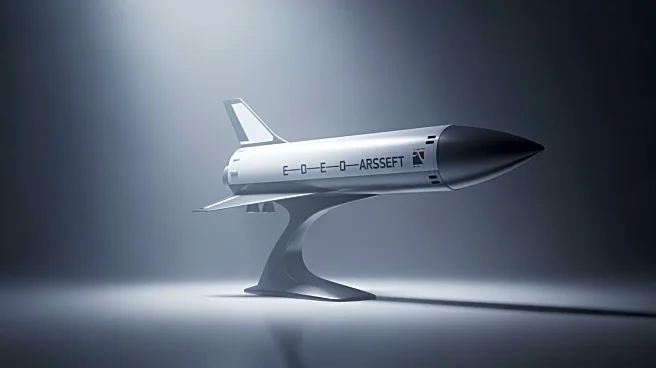What's Happening?
Boeing has issued a warning to its employees regarding potential layoffs due to uncertainty surrounding NASA's Space Launch System (SLS) program. The SLS, intended as the launch platform for NASA's Artemis
missions to the Moon and Mars, has faced significant delays and cost overruns. Boeing, responsible for much of the SLS's design and construction, has prepared layoff notices for approximately 200 employees, with the possibility of this number increasing to 400 depending on funding outcomes. The SLS program supports a nationwide supply chain, and its potential cancellation could have widespread economic and political implications.
Why It's Important?
The potential cancellation of the SLS program could have significant impacts on the U.S. aerospace industry, affecting thousands of jobs and decades of engineering expertise. Boeing's involvement in the SLS is a critical component of its space portfolio, and the program's uncertainty poses risks to its workforce and operations. Additionally, the situation highlights a strategic debate over whether NASA should maintain control over its launch systems or rely more on private-sector innovation. The outcome of this debate could shape the future of American space exploration and influence the balance between government-led and private-sector initiatives.
What's Next?
With Congress reviewing NASA's FY 2026 budget, the space community is awaiting decisions that will determine the future of the SLS program. Boeing is preparing for various scenarios, while competitors like SpaceX and Blue Origin continue to advance their own heavy-lift systems. The decision on the SLS program will not only affect Boeing but could also reshape the structure of America's space program, potentially shifting more responsibility to private companies.
Beyond the Headlines
The SLS program's fate is not just a financial issue; it involves broader strategic considerations about the role of government versus private sector in space exploration. The decision could redefine how America approaches space missions, impacting technological innovation and international competitiveness in the aerospace sector.










